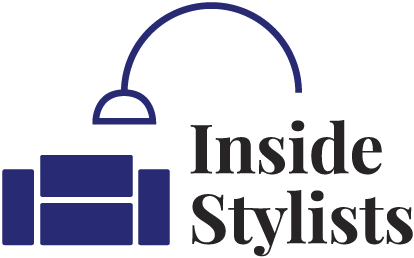 It’s a far too familiar topic amongst freelancers – how do you get paid on time and what do you do when your invoice is overdue? Well, we’ve been thinking about this a lot recently and have done some research on the subject and we have a game plan. Wanna know what it is?
It’s a far too familiar topic amongst freelancers – how do you get paid on time and what do you do when your invoice is overdue? Well, we’ve been thinking about this a lot recently and have done some research on the subject and we have a game plan. Wanna know what it is?
Our game plan
Most of the following strategies you’ll probably already be doing but some might help you keep your bank balance in the black and as far away from the red as possible.
Before you start work
It’s good to talk. Get to know how your client works. A simple chat about what you expect can throw up all sorts of issues that can be resolved before you even start – like magazines that pay on publication but shoot well in advance of a publication date, or a brand that has 90 day payment terms. If you know in advance you can compromise and hopefully they will too.
Be upfront. It’s a good idea to set the boundaries from day one. Let the client know your terms. If you need an expenses budget up front tell them. As long as you make this clear from the outset they won’t be surprised when you send an invoice that needs immediate payment.
Get it up front. If the work you are about to carry out is big, expensive and will take a long time don’t be afraid to ask for payment in advance or in stages. Many companies will do this for shoots that take longer than a couple of weeks or expenses will cost over a few hundred quid.
Make sure your invoice is right
Make it super clear. When it comes to your invoice make sure it looks as professional as it does beautifully designed and ensure all the essentials are on it in a clear way. Your invoice number, dates, names of the client and their shoot/feature details, purchase order number are all essentials, as well as your bank account details for a quick and easy payment.
Make payments easy. If a client has to contact you to find out whether you accept cheques or not it’s going to slow down the payment process- as will not stating your bank account number and sort code if they want to make payment via BACS.
What P.O.? Some companies will want a PO number on the invoice before they will make payment but the client doesn’t always make this clear so it only comes to light when you’re chasing a late payment – which of course in turn makes payment even later. Double check in advance if you’ll need a PO number – before you start any work.
Moneybox tips
After listening to the Money Box podcast, The Long Wait for Payment (January 2018) we got a ton of amazing tips which we’re sharing here, but have a listen when you get a sec – it’s really good.
- Once you have agreed to carry out some work keep an email trail. It’s not a contract but it helps to prove what they have asked for and what you have agreed to. If you don’t have a contract be clear in your emails. It’s a good idea to use a phrase such as “these are the payment terms. Do you agree?” It’s clear and there can be no confusion.
- Don’t accept vagueness. This may be a prs first time booking a shoot and they may be unclear what they should be doing but don’t let that cause you problems. Always double check what you are expected to do so there are no misunderstandings. If for any reason you aren’t sure what the client expect from you and your role spell it out to them. Drop them a line ‘I am just confirming that I will be doing a two-day shoot on this date with three days prep.’ And wait for them to reply and agree. That way when they ask you for a third day’s shoot or more prep days you have it on an email that this is additional to what you have agreed on and therefore will be charged accordingly.
- Once you’ve sent your invoice in give the accounts department a call after two or three days to check they have received it. They need to have all the correct information to make a payment on time. Do they need a purchase order, is the description you’ve put down clear enough? This is the best way to ensure that your client has everything they need on your invoice and if there’s anything missing it can be added now rather than in a months time when the invoice is already overdue. A client is unlikely to volunteer this need for additional information so it can hold up payment. These things affect their cash flow so they’re likely to keep schtum.
- Be prepared to drop bad clients. We know that we all need work but if a client withholds payment and you spend more and more time chasing them you might be better off shooting or writing for someone else completely who will pay on time and not keep you waiting.
- Companies have a duty to report what their terms and conditions are before you start work. If you send an invoice off to them and only find out that they have a 90-day payment terms they’ve not adhered to this. Call them out on it if you already have an outstanding invoice, and in the future check this out right at the very beginning.

How to chase a late payment
There’s no right or wrong way to chase an overdue payment but as we’ve experienced it – a lot! we thought we’d share what we do to get paid – other than following the tips above – obvs!
- When chasing an overdue invoice call the accounts department, they’re the ones who deal with the payment side of things and will usually know what stage your payment is at. If they have no record of your invoice you can either email the invoice over to them again or go straight to your commissioning contact. There’s always a good chance it’s still sitting on their desk waiting to be signed off!
- Gentle reminders work best – always. We are really chatty and friendly to whomever we speak to about late invoices. The person on the other end of the line will know you’re pissed off or you wouldn’t be calling, but the more friendly you are the more likely they are to help you and get the money in your bank!
- Don’t be afraid to point out the £967 you have paid out on their behalf in expenses and it’s now sending you overdrawn. You can even mention the late payment fee you’ll add if your invoice isn’t dealt with quickly. See the next point for late payment details.
- Keep calling. If you’re told you’ll be paid on Friday and it’s still not arrived in your bank call again. It’s okay to call again and again. Drive them a little bit mad so they pay you just to stop you calling. Have you seen The Shawshank Redemption? Andy gets his library! It works.
- If they’re still not paying you have a statutory right to charge a late payment fee which is a penalty fee that’s charged to a client if they do not pay within the agreed time limit. In accordance with the Late Payment of Commercial Debts Regulations 2002, you can charge £40, £70 or £100 depending on the size of the invoice (less than £1,000, less than £10,000 and above £10,000, respectively). You can also charge interest payable at 8 per cent over Bank of England base rate to your invoice. Usually mentioning this will make them cough up pretty quickly!
- Emily Coltman, chief accountant to cloud accounting provider FreeAgent says “For the future, you can pre-emptively guard against being paid late by introducing a late payment penalty into your terms. You can legally charge eight per cent interest plus the Bank of England base rate on invoices that are over 30 days late, and you’re also entitled to claim debt recovery costs of up to £100 for the inconvenience.”
- Don’t ignore the issue – it won’t go away. Deal with it head-on. If you’ve tried all of the above then it’s time to call in the big guns. A hardcore legal letter from a solicitor is usually all it will take to get a payment made and this can cost £50-100 it might be the best way to get paid. You can also use a debt collection agency or you can take the client to the small claims court.
Have you used any of these strategies? Do you have any tips to add? We’d love to hear your ideas. Join the conversation in the comments below and let us know.





Leave a Reply
You must be logged in to post a comment.